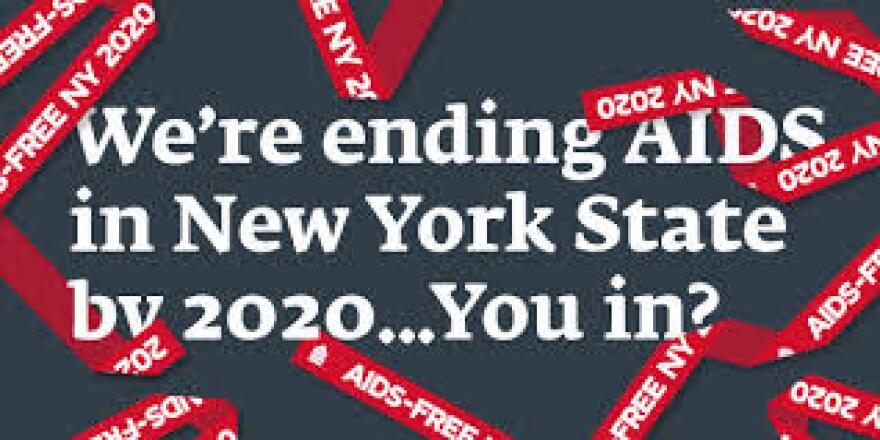Advocates for people living with H-I-V and AIDS are trying to find out what kinds of services and support could be improved. Mohawk Valley Health Infectious Disease Clinic Director Regina Brown says treatment for those with the virus has improved to one-pill-a-day to keep them healthy. But that doesn't solve the problem for many people.
“And it’s very, very challenging, and as much as people think it’s one-a-day pill, it’s still a pill. It sill reminds you that you’re HIV positive; and it still doesn’t address all the stigma. If the patient themselves feels that stigma, the problem is that they’re not going to come into care. That’s a big problem.”
Another problem is people taking a less serious attitude about the disease. Registered Nurse Jeannette Marleau works at the Mohawk Valley Clinic and sees different reactions.
Now they’re coming in and some of them (think), ‘well I’m positive. I’ll just take a pill.’ And then what we see is in 6, 7, 8 months, all of a sudden their adherence isn’t as great as it was in the beginning because the realization that ‘this is a medicine I’m going to have to take for the rest of my life and I’m 24 years old.’”
The Central New York H-I-V Care Network just launched a survey to collect the ideas and experiences of people who are H-I-V positive, but also those who are not infected. They want to see what care and prevention services are working and what is needed. Marleau sees value in returning to some basic prevention...now that the disease is treated as a chronic condition instead of a terminal one.
“For some of our newly-positive patients, it’s been kind of a double-edge sword. There’s sometimes a little bit of apathy with their HIV diagnosis and other times there still stuck that HIV means ‘I’m going to die.’ You have to get them past the fear that this is a terminal illness, (instead) that this is something that you can live with.”
A new treatment called PREP promises to help fight off new infections among people at risk of contracting the virus. Brown would like to see doctors more active in spreading the word about it.
“We work with patients that are already positive, so we can deal with partners. But if a primary care physician would be comfortable in doing a health risk assessment, they know their patients the best. So for me that’s the best avenue they can pursue.”
The H-I-V care survey is being launched in the Utica area...and will be repeated in Syracuse and elsewhere over the next two months.
The Mohawk Valley Health Infectious Disease Clinic and the CNY HIV Care Network are working with the stateside End the Epidemic initiative, designed to reduce the number of new infections near zero by 2020.
The End the Epidemic plan has three main goals:
Identify persons with HIV who remain undiagnosed and link them to health care.
Link and retain persons diagnosed with HIV in health care to maximize virus suppression so they remain healthy and prevent further transmission.
Facilitate access to Pre-Exposure Prophylaxis (PrEP) for persons who engage in high-risk behaviors to keep them HIV negative.



